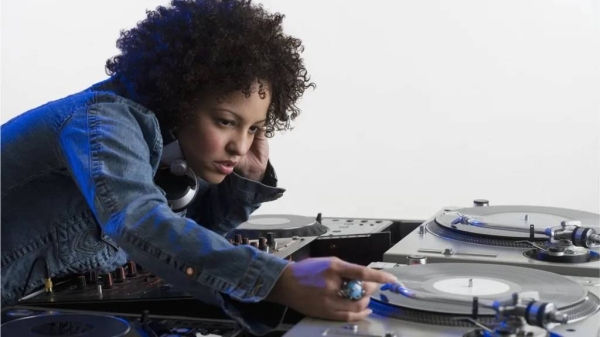A recent report reveals that misogyny, sexual discrimination, and harassment continue to plague female musicians in the UK. The findings come from the first ever UK Musicians’ Census, conducted by the Musicians’ Union and Help Musicians. Out of more than 6,000 music industry professionals surveyed, 2,526 identified as women. It was discovered that women are eight times more likely to face discrimination than men, with one-third reporting instances of sexual harassment at work. Women in the music industry are paid less, have shorter careers, and earn 10% less than their male counterparts on average.
The report highlights the inequality in the music industry, with more than a quarter of female musicians stating that they do not earn enough from music to sustain a career. The findings shed light on the systemic barriers that women face in their career progression. Nadia Khan, founder of Women in CTRL, emphasizes the need for the industry to take decisive actions to address the issues and create a more equitable landscape for women in music. The report echoes a previous report by MPs on the Women and Equalities Committee, which described the music industry as a “boys’ club” where sexual harassment and abuse are endemic.
The report includes testimonials from female musicians who have experienced gender discrimination, harassment, and abuse in the industry. Some women shared stories of being sexually assaulted on stage or while traveling home late at night. The report also highlights the unique barriers that women face in their career progression, such as childcare responsibilities and age discrimination. There is a call for the industry to make genuine commitments to prevent these findings from being repeated and to create a more inclusive environment for women in music.
The Musicians’ Census findings reveal the need for better pay gap reporting and transparency within the music industry. Naomi Pohl, general secretary of the Musicians’ Union, acknowledges that women are still being held back in the industry and advocates for action to be taken to address the issues. The report emphasizes the importance of creating a more equitable landscape for women in music and calls for legislation to tackle the problem of misogyny, sexual discrimination, and harassment. True progress can only be achieved when these systemic issues are addressed head-on. Women in the music industry deserve to have the same opportunities and recognition as their male counterparts.











